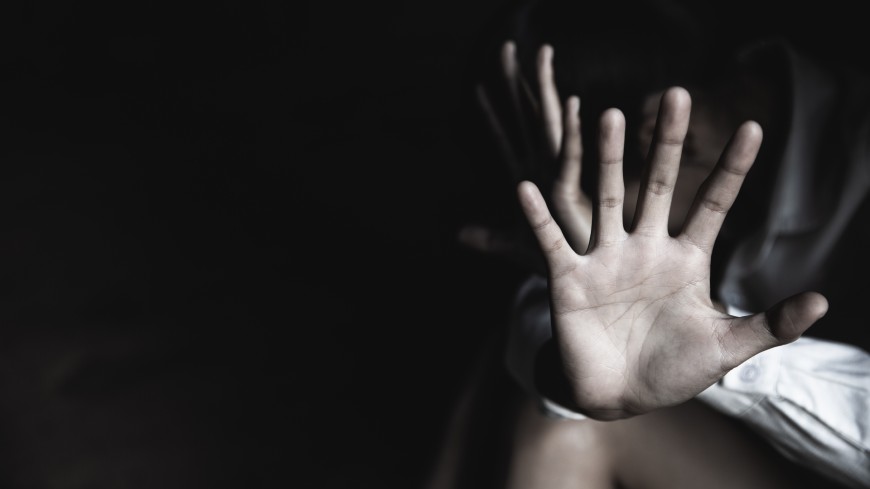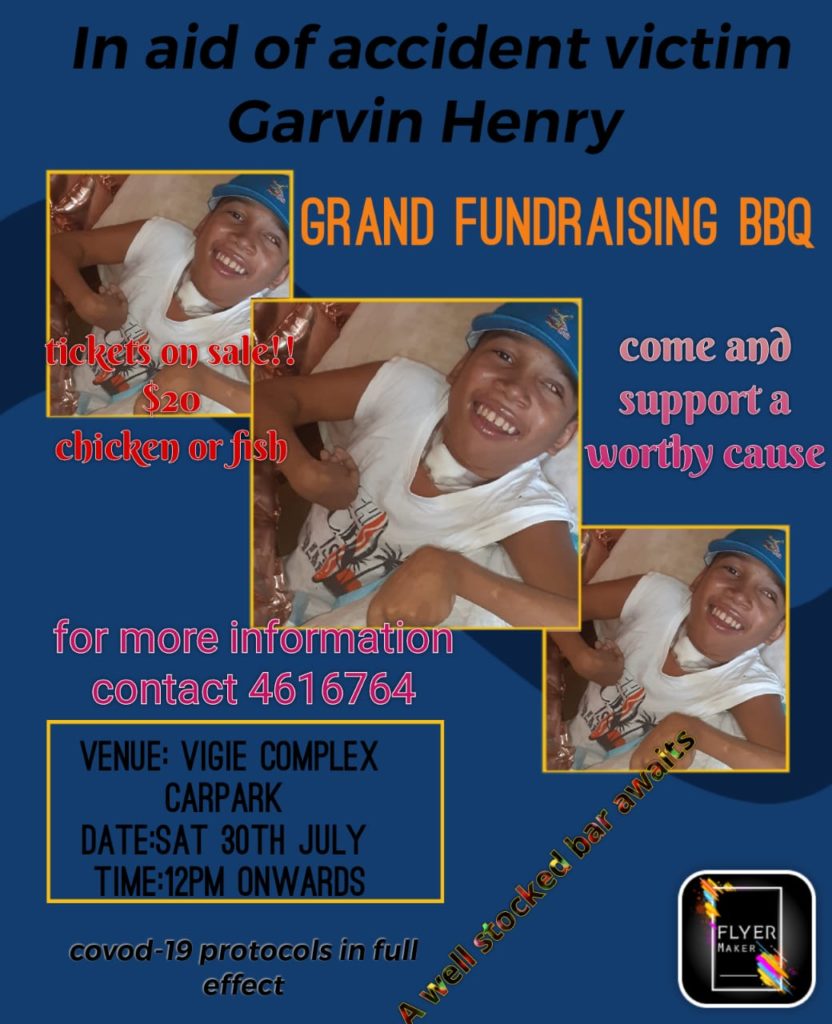2021 Trafficking in Persons Report: Saint Lucia remains at tier 2
By US Department Of State

SAINT LUCIA: Tier 2
The Government of Saint Lucia does not fully meet the minimum standards for the elimination of trafficking but is making significant efforts to do so. The government demonstrated overall increasing efforts compared to the previous reporting period, considering the impact of the COVID-19 pandemic on its anti-trafficking capacity; therefore Saint Lucia remained on Tier 2. These efforts included updating standard operating procedures for victim identification and referral to protective services; hiring an additional judge and two prosecutors to address criminal case backlog, including trafficking cases; funding an NGO for victim assistance; granting citizenship to a foreign trafficking victim; and receiving Cabinet approval for an amendment to make the penalties for trafficking commensurate with penalties for other serious crimes. However, the government did not meet the minimum standards in several key areas. The government did not conduct any trafficking investigations using the Counter-Trafficking Act; has not initiated a prosecution since 2015; and has never convicted a trafficker. The government did not enact or fund a new national action plan.
PRIORITIZED RECOMMENDATIONS:
Increase efforts to identify vulnerable individuals, especially children, migrants, and Cuban medical professionals, screen them for trafficking, and refer them to services. • Investigate, prosecute, convict, and punish perpetrators of sex trafficking and labor trafficking under the Counter-Trafficking Act. • Approve the amendment to the anti-trafficking law to remove sentencing provisions that allow fines in lieu of imprisonment for sex trafficking offenses. • Develop a national action plan for 2020 and onwards. • Reduce court backlog and pretrial detention delays affecting trafficking cases. • Develop and implement labor recruitment policies, hire and train more inspectors for labor trafficking inspections, and improve interagency coordination on labor issues. • Implement standard operating procedures on a victim-centered approach to guide police, immigration, labor, child protection, judicial, and social welfare officials on victim identification and referral. • Continue to train law enforcement officials to gather evidence of trafficking cases appropriate for prosecution. • Provide legal mechanisms for all victims to work and receive temporary formal residency status.
PROSECUTION
The government maintained minimal law enforcement efforts. The 2010 Counter-Trafficking Act criminalized sex trafficking and labor trafficking and prescribed penalties of up to five years’ imprisonment or fines up to 100,000 Eastern Caribbean dollars (XCD) ($37,040) for offenses involving an adult victim; the maximum imprisonment penalty increased to 10 years’ imprisonment for those involving a child victim. This penalty was sufficiently stringent; however, by allowing for a fine in lieu of imprisonment, the prescribed punishment for sex trafficking was not commensurate with those for other serious crimes, such as rape. The Cabinet approved an amendment to the 2010 Counter-Trafficking Act that would remove the option of a standalone fine as a penalty for convicted traffickers; the draft amendment remained pending for passage in Parliament at the end of the reporting period because pandemic-related restrictions precluded its consideration.
The government did not conduct any trafficking investigations during the reporting period, compared with three investigations in 2019, two in 2018, zero in 2017, and three in 2016. The government reported investigating 30 child sex trafficking cases under the Child Justice Act, of which an NGO referred 28, but did not specify under which provisions of the law. After the NGO notified the human trafficking task force of the cases, the task force reported it would share the Counter-Trafficking Act with the police and encourage them to treat the cases as trafficking cases. The government continued to seek authorization from a foreign government to send investigators to neighboring country to investigate an unauthorized international adoption case involving the suspected trafficking of two children initiated in the previous reporting period. The government has not initiated a trafficking prosecution since 2015. The government has never convicted a trafficker, and courts have closed trials or dismissed charges in all trafficking prosecutions since 2016. Police suspended surveillance and sting operations normally carried out at nightclubs and sporting events during the reporting period due to the pandemic. Observers reported significant court backlogs and pretrial detention of defendants for all serious crimes, including trafficking cases, that could last as long as six years. The government hired an additional judge and two prosecutors to help reduce the backlog of such cases. There was no separate budget for trafficking cases, and court resources remained limited. The Royal Saint Lucian Police Force had three officers in the Major Crimes Unit dedicated to trafficking investigations, and its Vulnerable Persons Unit could also investigate potential trafficking cases involving children or sexual exploitation. The government did not report any investigations, prosecutions, or convictions of government employees complicit in trafficking offenses.
PROTECTION
The government maintained protection efforts. The government did not identify any potential trafficking victims. The NGO noted the 28 victims it identified was higher than in previous years, when it referred, on average, one individual per year; it attributed the increase to greater financial insecurity as a result of the pandemic. The government identified two child trafficking victims in 2019, zero victims between 2016 and 2018, and ten victims in 2015. Authorities used standard operating procedures (SOPs) for victim identification, referral, and protection; the task force formally approved updates to these SOPs in March 2021. The government reported hiring 113 Cuban medical workers to assist in the pandemic response and signed a bilateral agreement with Cuba governing the work and living arrangements for the medical professionals. The government reported the agreement provided the workers with free living accommodations, free dental and medical care, and a stipend that varied based on position (i.e., doctor, nurse, or administrative). The government did not specify whether it paid the Cubans directly but said the medical workers remained in physical possession of their passports. The government did not report additional measures to screen the individuals for trafficking indicators. The police screened an unknown number of individuals involved in a human smuggling operation for trafficking indicators and did not identify any as trafficking victims. Specially trained police officers interviewed potential trafficking victims and reported generally screening for trafficking indicators when detaining or arresting individuals involved in commercial sex, migrants, and those in other vulnerable groups. Police lacked sensitization and training on sex trafficking and sex tourism, particularly involving children.
The government reported it worked with NGOs and encouraged them to report cases. The government did not maintain a dedicated shelter for trafficking victims and had an agreement with NGOs to provide shelter for victims when the need arose; the government did not report referring any victims to NGO shelters during the reporting period. The government reported it provided 72,000 XCD ($26,670) in 2020 to fund an NGO to provide victim assistance including shelter, food, clothing, and counseling services. The government allocated 81,000 XCD ($30,000) in the federal budget for trafficking-related activities in 2019, including victim protection and assistance, but no confirmed trafficking victims were identified during the reporting period. The government did not allocate any funds for victim protection in 2018 and 2017, compared with 1 million XCD ($370,370) in 2016 for victim care related to a 2015 labor trafficking prosecution. The Division of Human Services entitled victims to counseling, meals, accommodation, medical care, toiletries, clothing, and in some cases, allowances; the government did not report providing these services during the reporting period. The Office of Gender Relations could refer trafficking victims to NGOs for legal, health, advocacy, and crisis services. Adult victims were able to leave shelters at-will, but the government did not allow them to work or receive formal residency status because it considered victims wards of the state; however, the government permitted victims who were material witnesses in a criminal case to remain and work in the country. The Division of Human Services could place child victims in one of two children’s homes, but it did not report doing so during the reporting period.
The 2010 Counter-Trafficking Act contained victim protection provisions, such as privacy measures, the ability to testify via video link, and witness protection, to encourage victims to participate in the investigation and prosecution of traffickers. The law also provided for victim restitution and other compensation in cases of traffickers’ conviction. The government did not report using these provisions during the reporting period. Foreign victims had the same access to care as domestic victims, and the government could assist foreign victims seeking repatriation. During the reporting period, the government granted citizenship to a Sri Lankan trafficking victim and began processing a citizenship application from another Sri Lankan trafficking victim who held refugee status; the case remained pending at the end of the reporting period.
PREVENTION
The government maintained efforts to prevent trafficking. With the support of the Prime Minister, the Ministry of Home Affairs and the Ministry of National Security led the task force consisting of relevant agencies and NGOs, which met in March 2021. In response to the pandemic, the government shut its borders and effectively stopped tourism from late March 2020 to July 2020 and then imposed strict entry requirements during a COVID-19 outbreak from October 2020 to the end of the reporting period; authorities diverted government resources, including those for trafficking and the task force, to its pandemic response. The government diverted further resources, including those for trafficking, to address an outbreak of dengue fever. In addition, government personnel focused primarily on the pandemic response and worked from home due to social distancing requirements, inhibiting the government’s ability to implement anti-trafficking efforts. The government reported the official in charge of drafting the new national action plan was diverted to the Ministry of Education as it began to implement new virtual public education efforts in response to pandemic-related restrictions. The task force canceled all its public awareness events and in-person trainings, including for diplomats. The task force reported issuing trafficking-related press releases and promoting trafficking awareness on social media. The public could still make referrals through a police command center control room and 24-hour hotline launched in 2019, which handled calls in English and Saint Lucian Creole French; the government did not report any trafficking-related referrals from the hotline during the reporting period. In 2020, the government started a comprehensive study to provide recommendations on targeting economic development plans to reduce the vulnerability of economic populations to trafficking and other crimes; the study remained ongoing at the end of the reporting period.
The government did not report any changes to its regulations and oversight of labor recruitment or efforts to regulate recruitment practices. While labor laws prohibited most forms of forced or compulsory labor, the government did not enforce them effectively. Expert observers noted there were not enough trained labor inspectors to monitor all sectors for labor trafficking and that inspectors usually visited suspect areas only after receiving a complaint. In addition, coordination between ministries and departments dealing with labor issues was poor, hindering enforcement efforts. In 2020, the government reviewed the Labor Act, which specified the Labor Department’s authorities; the Attorney General was reviewing the revised draft legislation at the end of the reporting period. Authorities cited limited resources and pandemic-related restrictions as the reasons for a 50 percent reduction in labor inspections during the reporting period. The Labor Department reported an insufficient operational budget in 2020, and authorities said inspectors did not have enough office facilities, telephone and inspection tools, or transportation to access some remote areas. Authorities reported all inspections looked for child labor, but they did not conduct child labor-specific inspections; inspectors did not receive child labor-specific training. The government did not identify any cases of child sex tourism during the reporting period, nor did it take measures to reduce the demand for commercial sex acts.
TRAFFICKING PROFILE
As reported over the past five years, human traffickers exploit domestic and foreign victims in Saint Lucia, and traffickers exploit victims from Saint Lucia abroad. Traffickers exploit local children in sex trafficking. Government officials, civil society, and educators reported Saint Lucian children from economically disadvantaged families are at risk of child sex trafficking, often encouraged or forced by parents and caretakers in exchange for goods or services. NGOs reported an increase in suspected cases of sex trafficking involving children during the reporting period. Civil society has also reported women, or in some cases older teenagers, recruit younger children to provide commercial sex to adults at street parties. Documented and undocumented migrants from the Caribbean and South Asia, including domestic workers, are vulnerable to trafficking. Foreign women who work in strip clubs and in commercial sex are at risk of sex trafficking. NGOs report that disadvantaged young women from rural areas are vulnerable to sex trafficking, and children from poor communities are also vulnerable to sexual exploitation. According to the government, business owners from Saint Lucia, India, China, Cuba, and Russia are the most likely traffickers in the country. Cuban medical professionals working in Saint Lucia may have been forced to work by the Cuban government.






